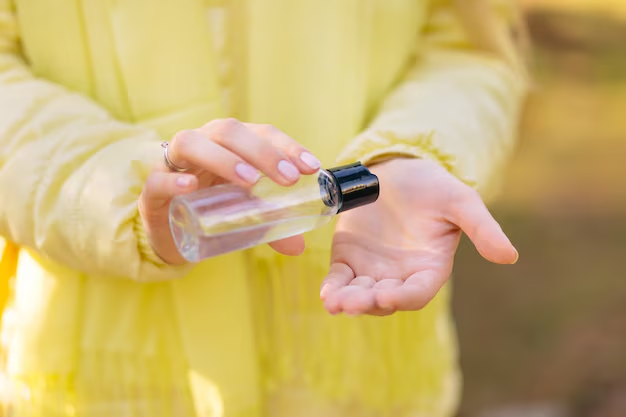Exploring Witch Hazel: Is It a Good Solution for Acne?
Acne is a prevalent and often frustrating skin condition that affects millions of people worldwide. While there are countless remedies and treatments available, one natural option that has gained attention is witch hazel. Recognized for its anti-inflammatory and astringent properties, witch hazel is often touted as an effective solution for acne. But is it genuinely beneficial, or just another skincare myth? Let's dive deep into the world of witch hazel and its potential impact on acne.
Understanding Witch Hazel: Nature’s Astringent
Derived from the leaves and bark of the North American witch-hazel shrub, Hamamelis virginiana, witch hazel has been used for centuries as a medicinal plant. Known for its antioxidant and anti-inflammatory properties, it is often used in products designed to treat skin issues, particularly those related to irritation and inflammation.
What Makes Witch Hazel Unique?
- Astringent Properties: Witch hazel contains tannins that are natural astringents, helping to tighten skin and reduce pores.
- Antioxidant: It is rich in polyphenols, which help fight free radicals and reduce oxidative stress on the skin.
- Anti-inflammatory: Its properties help soothe irritated skin, potentially reducing the redness and swelling caused by acne.
Witch Hazel and Acne: A Closer Look
When it comes to acne, inflammation and oil production are key contributors. Witch hazel's properties theoretically make it a potential aid in combating these factors.
How Can Witch Hazel Help with Acne?
Reduces Oiliness: By tightening the skin and minimizing pores, witch hazel can potentially reduce the amount of oil on the skin's surface, thereby diminishing the likelihood of pore blockages that lead to acne.
Soothes Inflammation: Its anti-inflammatory action helps calm the skin, reducing the redness and swelling associated with active breakouts.
Cleanses Skin: Acting as a mild astringent, witch hazel can help cleanse the skin, removing excess oil and impurities that may clog pores.
Considerations for Using Witch Hazel
While witch hazel can offer several benefits, it may not be suitable for everyone, particularly those with sensitive skin or conditions like eczema. It's always crucial to patch test any new product to gauge your skin's reaction.
Witch Hazel: A Part of a Larger Skincare Routine
Incorporating witch hazel into your skincare routine can be beneficial, but it shouldn't be the sole treatment for acne. A comprehensive approach is often the most effective. Here’s how it can fit into your regimen:
Steps to Include Witch Hazel in Your Routine
- Cleanse: Use a gentle, non-comedogenic cleanser to remove dirt and oil.
- Tone with Witch Hazel: Apply witch hazel after cleansing to tone and prep your skin for further treatments.
- Moisturize: Choose a lightweight, oil-free moisturizer to keep skin hydrated.
- Spot Treatments: Use specific acne treatments for active breakouts to target and heal spots.
- Protect: Apply a broad-spectrum sunscreen during the day to protect against UV damage.
What to Avoid
- Using witch hazel as your only treatment if you have persistent or severe acne.
- Over-relying on its astringent properties, which can sometimes lead to excessive dryness and irritation.
Other Natural Alternatives to Consider
While witch hazel is beneficial, there are other natural remedies that can be used in conjunction, or even as alternatives, depending on your skin's needs.
Tea Tree Oil
Known for its antimicrobial properties, tea tree oil can be an excellent spot treatment for acne due to its ability to kill acne-causing bacteria.
Aloe Vera
With its soothing and healing properties, aloe vera can help reduce inflammation and promote skin healing after acne breakouts.
Honey
Honey's natural antibacterial and moisturizing properties can help maintain skin health while fighting off acne-causing bacteria.
Green Tea Extract
Rich in antioxidants, green tea can reduce inflammation, improve skin elasticity, and help fight acne.
Professional Treatments Worth Considering
If natural remedies like witch hazel aren't cutting it, you might explore these options with a dermatologist or skincare professional.
Chemical Peels
Dead skin cells are removed in this treatment, which can help unclog pores and reduce acne.
Laser Therapy
Targets acne-causing bacteria and reduces oil production, leading to fewer breakouts.
Prescription Medications
Retinoids and antibiotics prescribed by a dermatologist can be particularly effective for moderate to severe acne.
Conclusion: Understanding the Role of Witch Hazel
While witch hazel is a valuable addition to many skincare routines, particularly for those with oily or acne-prone skin, it should be part of a broader strategy that includes good skincare habits and professional advice when necessary. Remember, what works for one person might not work for everyone, and finding the right balance is key to managing acne effectively.
Quick Takeaways on Witch Hazel for Acne
- 🌿 Natural Astringent: Helps reduce oiliness and tighten pores.
- 🔍 Anti-Inflammatory: Calms redness and swelling, aiding in the treatment of acne.
- 🚫 Not for Everyone: Can cause irritation in sensitive skin; patch testing is crucial.
- 🌱 Part of a Routine: Best used in combination with other treatments.
Empower yourself with the right information, and take steps towards clearer, healthier skin. 🌟

